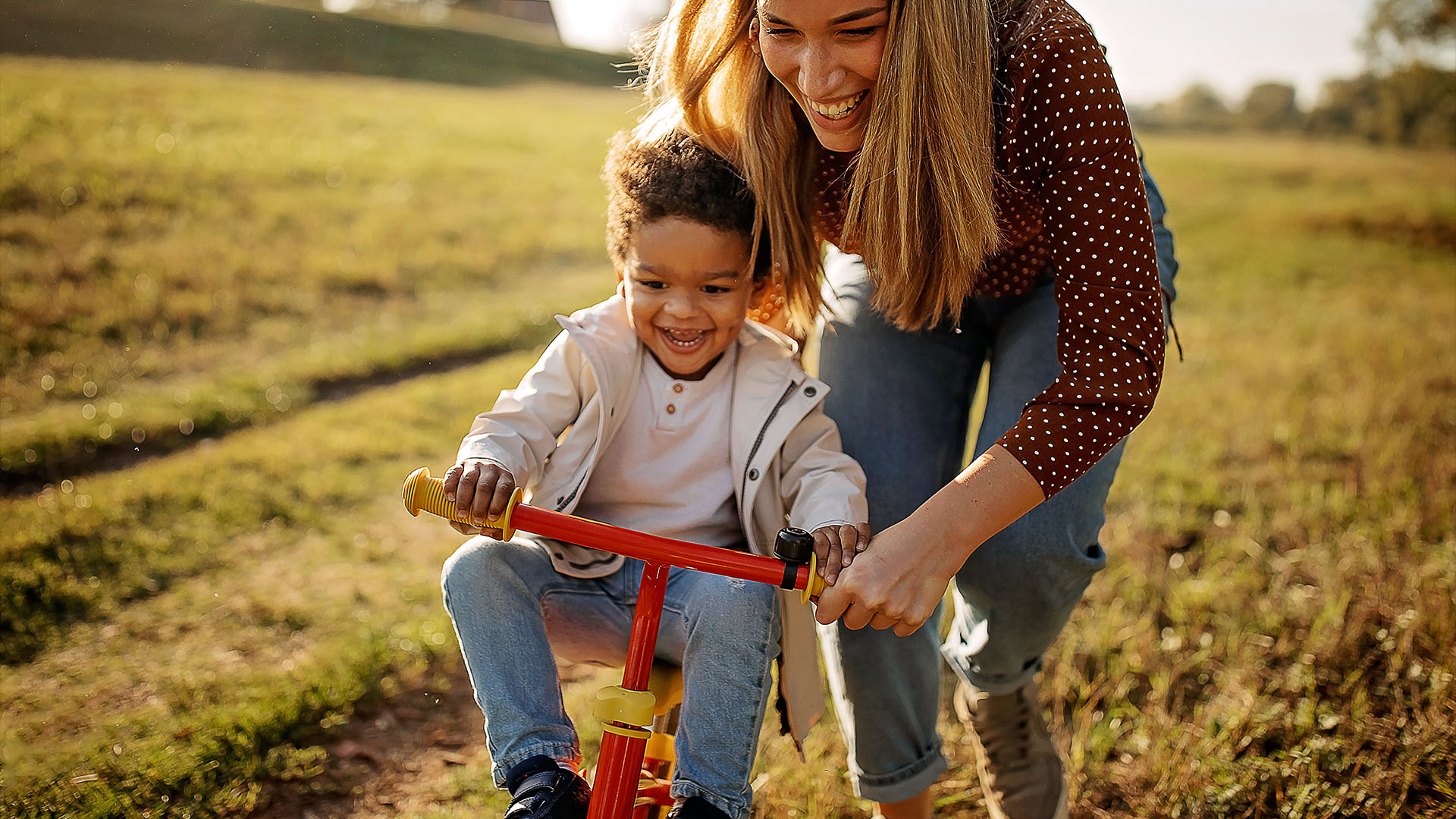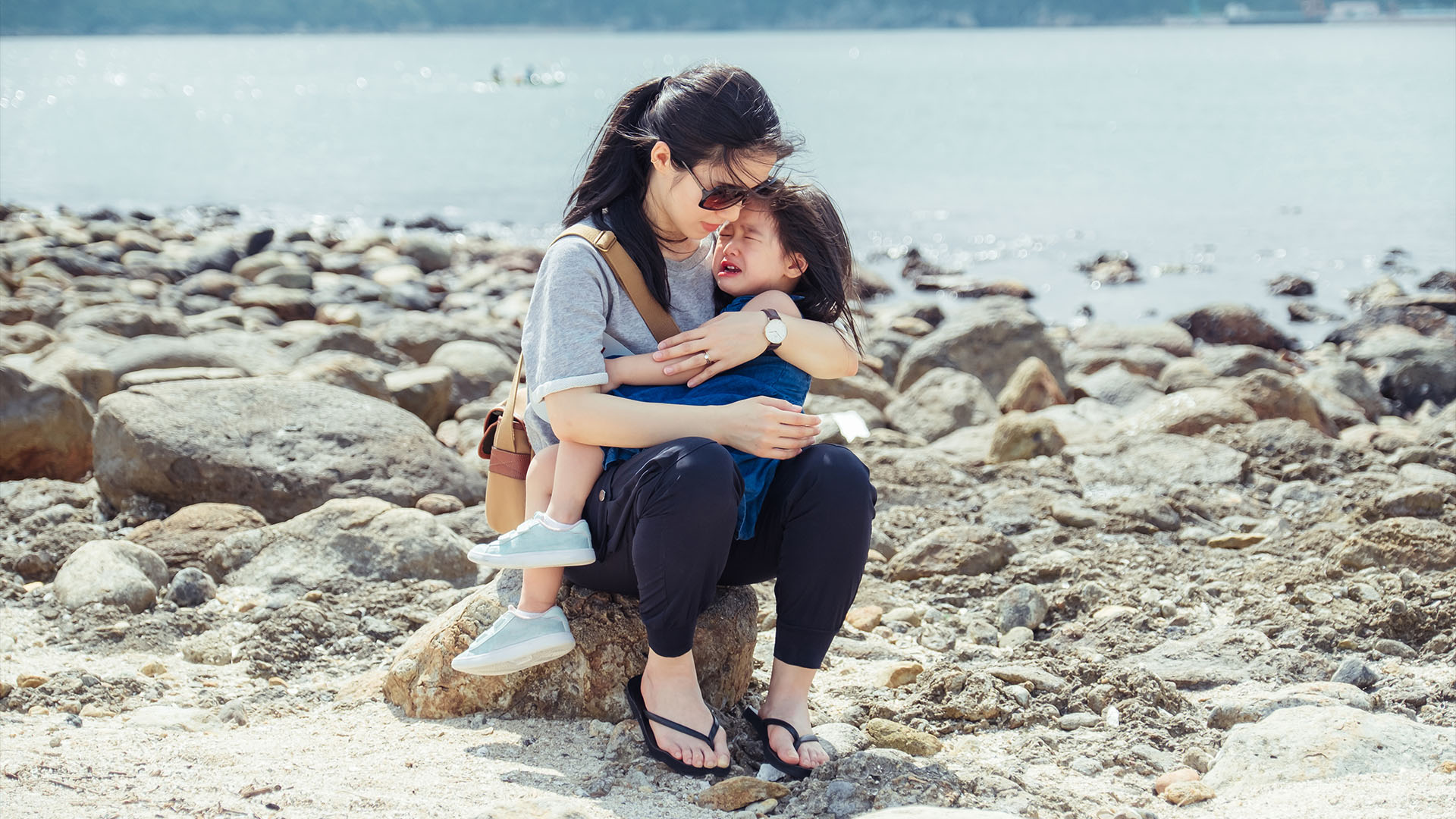
How accurate are our first childhood memories?
Can we trust our earliest memories, or are they unreliable?

Ah, the nostalgia of childhood memories — that cherished first bicycle ride, the debut dip in the ocean, the distinctive patterns of wallpaper long since removed from the family home. These early recollections are often steeped in sentimentality and woven into the fabric of our identity. But can they be trusted?
In other words, how reliable are our memories? As it turns out, they are usually fairly accurate, especially if the events we are recalling are scary or painful.
In two minds
Still, Carole Peterson, a child psychologist and professor at Memorial University of Newfoundland who specializes in early childhood memory, told Live Science that our memories are not infallible, and both children and adults can have recollections that are not entirely accurate.
"Memories from every age can be malleable," Peterson said. "This is not unique to early memories. At all ages, we are susceptible to suggestion, although it is true that younger children are more susceptible than older children or adults."
Related: Can you recover repressed memories?
Research has found that people often forget events relatively quickly after they happen, especially if they were run-of-the-mill. In a 2020 study published in the journal Psychological Science, researchers found that people had fewer memories of real world events the more time had passed since they happened. The memories were also less detailed as more time had passed. However, the team also noted that when the participants did successfully recall an incident, they were accurate 93% to 95% of the time, no matter how much time had passed.
So, what does this mean in terms of establishing the veracity of our first memories?
In a study published in the journal Child Development in 2011, Peterson and colleagues interviewed children ages 4 to 13 about their earliest memories and re-interviewed them two years later. They found that "events infused with emotion were more likely to persist." In addition, if the child had a clear memory rather than a confused one — for example, if it was organized and chronological — it was more likely to be recalled.
Additionally, Peterson's research has found a strong link between emotion and accurate recall. If an event is particularly harrowing or painful, for example, the quality of the memory is often higher.
This is supported by a 2015 study in which researchers interviewed preschoolers about an injury serious enough to require hospital treatment. They then followed up a decade later to see what the adolescents remembered of their childhood injury, Peterson said. Researchers also interviewed adults who witnessed the injuries shortly after they occurred to serve as the "accurate" record.
Sign up for the Live Science daily newsletter now
Get the world’s most fascinating discoveries delivered straight to your inbox.
"The adolescents were remarkably accurate in recalling the details of these very early emotional and salient events," Peterson said. "We were surprised by this."
In some cases, people — and children in particular — can form false memories, or vivid recollections of events that never happened. In German psychiatrist Michael Linden's 2013 book "Hurting Memories and Beneficial Forgetting," Linden states that high social expectations can lead to the development of false memories in children who learn to respond as expected. These false memories can be remarkably realistic and detailed, making them hard to distinguish from real memories.
A 2011 study published in the journal Medical Hypotheses attempted to determine why false memories occur. The researchers suggested that "emotional-facilitation is prominent in false memories," adding "emotions may overwhelm or supersede the feelings of uncertainty, or doubt tag, for an incorrect memory." The study's authors also noted that "suggestibility" appears to be a key factor in false memories, before concluding that "the very notion of false memory stands as a challenge to our self-image as rational, veridical reporters of actual events."
Related: Do we really use 10% of our brains?

Fact from fiction
Many people's earliest memories are banal, sketchy or abstract. So, given we tend to remember emotional events with a greater degree of clarity, how likely are these more uneventful recollections to be precise?
Peterson published a study in 2017 in which children ages 4 to 9 initially recalled their very earliest memories and were asked about them again eight years later. "With some very general hints, they recalled most — but not all — of the events, but the specific content they mentioned often differed," Peterson said.
For kids who were ages 6 and up at the time the initial memories were made, very little content was contradictory, but it differed in terms of what they chose to talk about, Peterson said. "For example, when relating a particular camping trip, they often described different components. Children who were 4 or 5 at the time of the initial interview, however, were much more likely to contradict what they had said earlier."
Ultimately, Peterson said, it is very difficult to determine the "true" accuracy of a memory, especially when it comes from early childhood, unless the event was recorded and video evidence exists.

Joe Phelan is a journalist based in London. His work has appeared in VICE, National Geographic, World Soccer and The Blizzard, and has been a guest on Times Radio. He is drawn to the weird, wonderful and under examined, as well as anything related to life in the Arctic Circle. He holds a bachelor's degree in journalism from the University of Chester.









